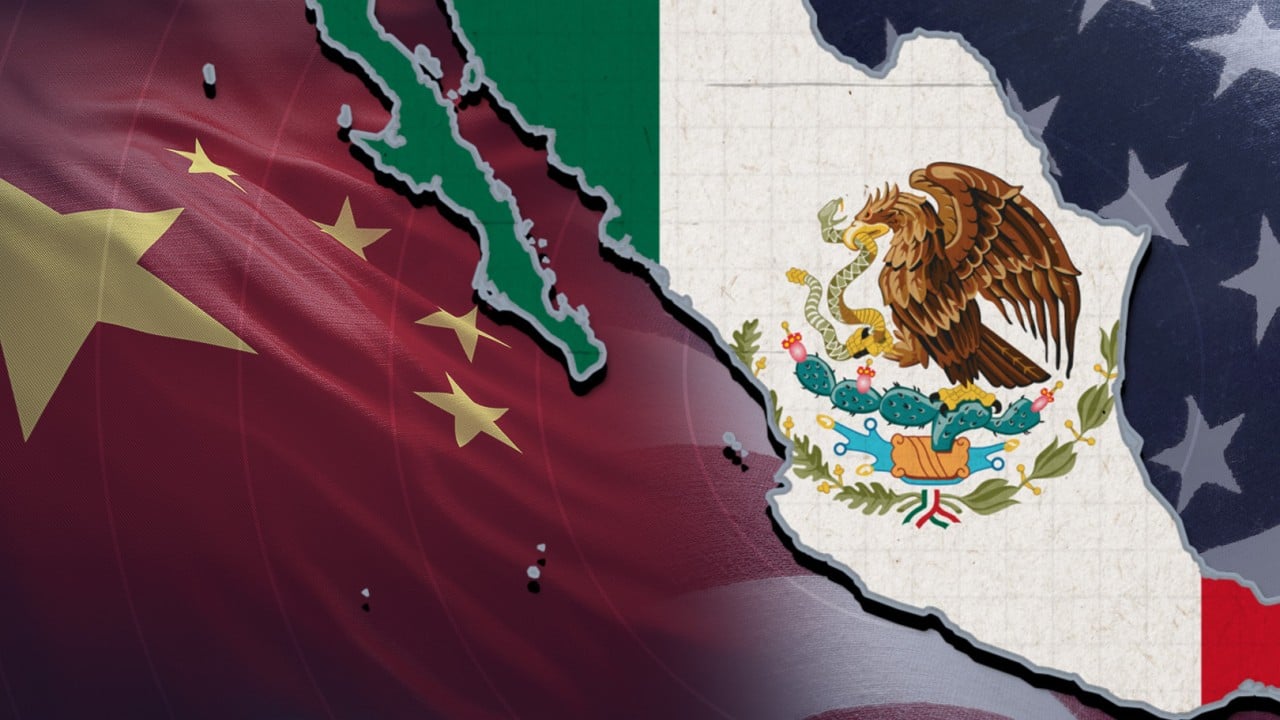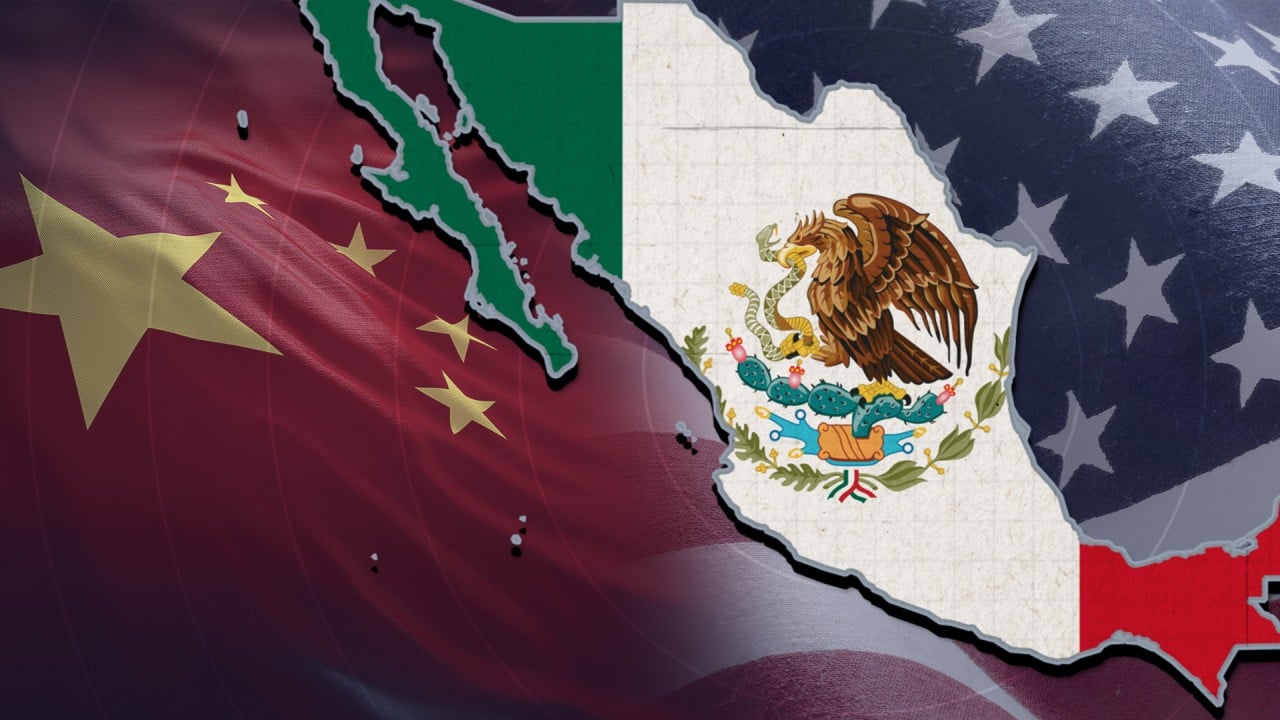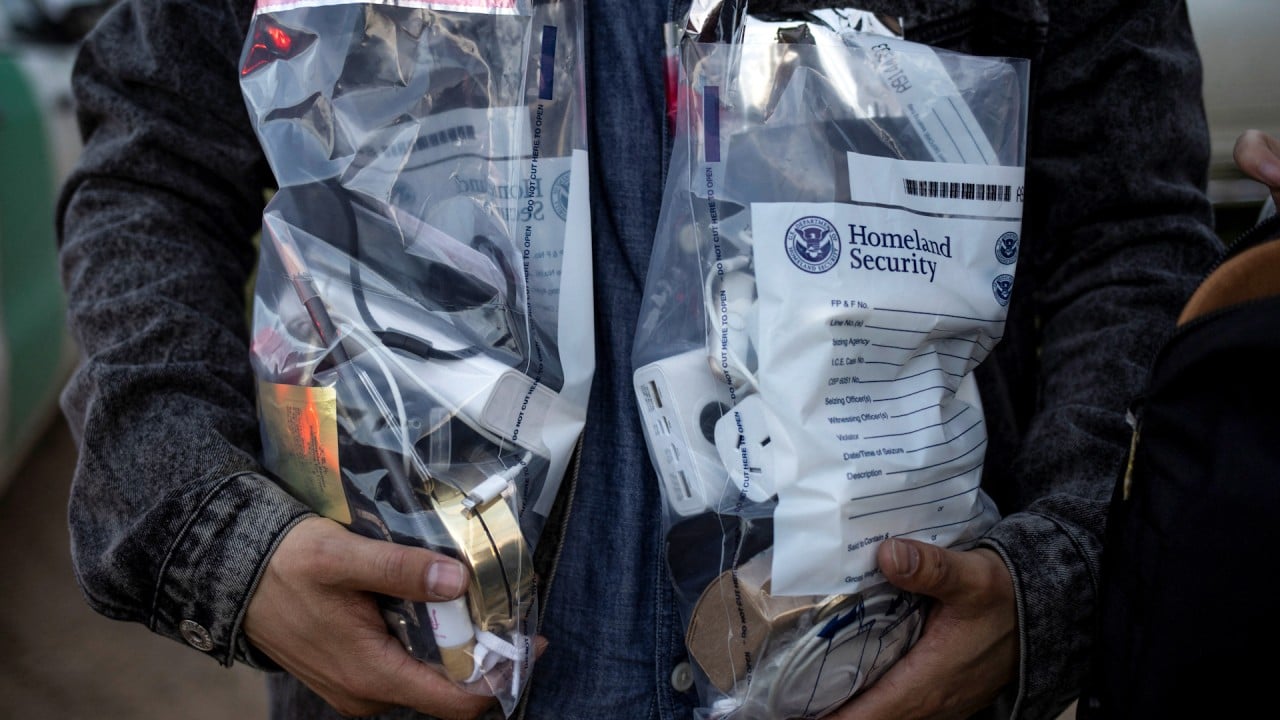In the heart of Mexico City, only a few blocks from the historic centre, a 16-storey shopping complex sat dormant. Paper signs reading “CLAUSURADO” – “closed” – had been plastered over the main entrance for more than a month.
“We are almost ‘drinking the northwest wind’,” said Elisa Guan, an apparel wholesaler with a store in the centre, using a Chinese idiom meaning “nothing to eat”. She had been out of business since July 11 – the day local authorities ordered the facility’s closure.
Among its tenants, the market is called “Yiwu Mall” – a reference to the city in eastern China that is home to the world’s largest small-commodities market. It is one of several wholesale centres operated by Chinese nationals that have popped up in the neighbourhood over the past four years, creating a quasi-Chinatown and a reliable source of cheap products like keychains and water bottles.
But the mall has been caught in a vortex of controversy since June, when Mexican newspaper Reforma released a series of investigative reports on the complex, emblazoned with provocative headlines like “Chinese Invasion” and “Informal Empire”. The periodical accused store owners of tax evasion, ignoring safety hazards and squeezing out local businesses.
The allegations, and the mall’s subsequent closure, have brought into sharp relief the resentment some in the local population are feeling towards the Chinese emigrant community.
The Latin American country has become a prime destination for Chinese companies, as its border with the United States provides a workaround for trade restrictions aimed at products of Chinese origin. That inflow has, in turn, created a larger constituency – among locals as well as emigrants – for inexpensive consumer goods like those provided by merchants at the mall.
“Many Chinese have come to Mexico City in the past two or three years, flooding into the city centre to open stores,” said Simon Zhao, vice-president of the China Business Association in Mexico. “To be honest, some people tend to exploit loopholes in local rules when doing business.”
But some local media coverage is not really fair, said Zhao – also CEO and founder of Solarever, a solar panel and electric vehicle manufacturer – as it directs blame to the entire Chinese community and fans negative sentiment.
“I’m worried that Mexicans will be misled. They used to be really friendly towards China and Chinese people,” he said.
Along with others in the local Chinese community, Zhao has been preparing several charitable donations – sending projectors and iPads to rural schools and automated defibrillators to public areas like airports – in part to restore that amicable relationship.
“Chinese should reflect on ourselves and be aware of our own problems,” Zhao said. “We cannot only think about making money. It is necessary to localise while doing business in Mexico, so local people share the benefits.”
In a letter to the Chinese business community sent in early July, the Overseas Chinese Organisations in Mexico wrote: “We are fully aware that it is not easy for everyone to carve out a path in a foreign country, and we also understand your enthusiasm in advancing your career.
“However, we hope that everyone can pay attention to the safety and harmony of the local community while pursuing success,” said the social group for ethnic Chinese in Mexico. “Let us work together to abide by local laws and regulations, and make contributions to Mexico’s economic development and social progress.”
Despite the “timid resurgence” of hostile sentiment triggered by the Yiwu affair, little ill will has spread beyond the capital, said Eduardo Tzili-Apango, professor of China studies at Mexico’s Metropolitan Autonomous University.
Though some comments on articles related to the closure of the mall expressed animosity, he said others included complaints about losing a place to buy affordable products, as well as criticism against the Mexican government for approving a retail development for a building damaged by an earthquake.
“I cannot say that the resentment against Chinese will grow further in Mexico, as Yiwu Mall was well accepted – or at least tolerated – in Mexican society,” Tzili-Apango said.
Guan, the apparel wholesaler, said while there had been negative news stories about Chinese people, she thought it was an “exaggeration” to take that to mean there is “anti-Chinese sentiment”.
Monterrey, a major industrial city on the US border, has become a landing pad for Chinese companies as they attempt to navigate the “nearshoring” strategy of Mexico’s northern neighbour. Factory managers there said the negative news has yet to impact their operations.
I am worried the same thing that happened 100 years ago will happen again
But some in the community are wary of what role the US may play in the formation of anti-Chinese sentiment in the Latin American country, as closer economic engagement with Chinese firms in recent years has put Washington on high alert.
In April, Mexico announced tariff increases on 544 items imported from countries without a free-trade agreement – of which China is one – and last month, the US and Mexico closed a loophole in the steel and aluminium trade which increased duties on supplies from China routed across the southern border.
For Hugo Wong, it is easy to empathise with the community’s concerns. His ancestors – who migrated from Guangdong province to Mexico in the late 19th century and became successful businessmen – survived a massacre of over 300 Chinese in the city of Torreon in 1911 and the deportation and illegal expulsion of Chinese-Mexican families in the 1930s.
“I am worried the same thing that happened 100 years ago will happen again,” said Wong, an investor and author of the book America’s Lost Chinese.
Last summer, in the Mexican state of Hidalgo, local merchants staged a protest against their Chinese competitors, urging city and state governments to prohibit new stores.
Mexico is far from the only country to experience such a backlash. Twenty years ago in Elche, Spain, a Chinese shoe warehouse was set ablaze by locals, who claimed discontent over what they saw as a flood of cheap products that had priced out local businesses.
“[The Chinese] don’t think about what it does to the local people. But you can’t blame them,” Wong said. “China is probably the most competitive place in the world. So when Chinese go abroad, they bring a very competitive mindset. They take a lot of risks to go to new countries. They just want to be successful.”
In keeping with that outlook, Chinese businesspeople have adjusted the way they establish themselves overseas: as goods of Chinese provenance encounter more trade barriers, companies are shifting stages of production or entire lines to foreign countries rather than simply exporting what they make.
With this process comes new challenges, and a greater need for cross-cultural sensitivity. As Chinese firms move abroad, bringing more intensive capital investments, closer relationships are required with the local government and community.
The key to successful globalisation for any company is a high degree of localisation, which includes respect for the locals and their culture, said Dominique Turpin, European president and professor of marketing at the China Europe International Business School in Shanghai.
“If you have a big cake in front of you, don’t eat all of it,” Turpin said. “Leave a piece to the locals.”
For the hundreds of tenants who have awaited the reopening of Yiwu Mall for more than a month, a more literal, celebratory cake may be in order. In a WeChat post on Tuesday night, Lin Yun – general manager of the company which owns the shopping centre – announced the complex would return to business on Wednesday.
The announcement came not a moment too soon – some tenants and their workers had already run out of patience, taking to the streets in late July to demand a return to work.
But even as the mall has been permitted to reopen, the unease its closure generated is likely to linger. Not far away, at three other malls Lin’s company operates, Chinese signage has already been removed from the buildings as a precaution.
“We need to keep a low profile,” Lin said in a video posted last month.




